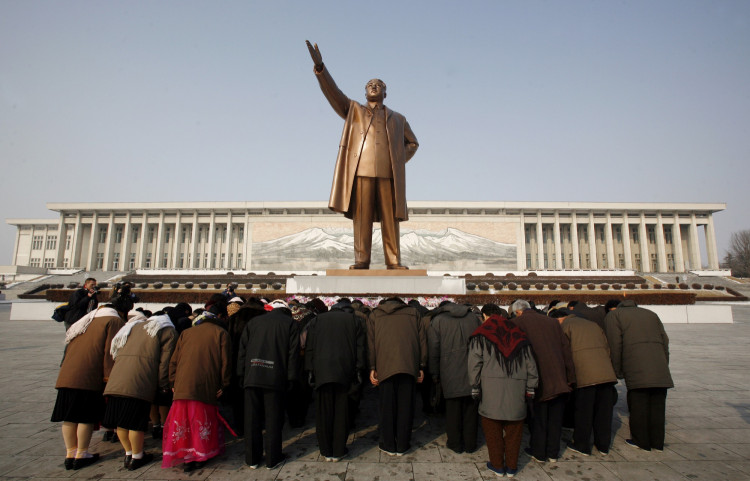North Korean officials, reportedly, told the country's already starving people that they should ration their food as the shortage could last another three years. Officials said it would take some time before the nation could reopen its land border with China.
A resident of the city of Sinuiju, near the Chinese border just across the Chinese city of Dandong, told Radio Free Asia that they were told by officials that the nation's food shortage would likely continue until 2025. He said that the officials emphasized that it would not be likely that the border between China and North Korea before 2025 would be reopened.
In January of last year, North Korea closed down its border with China, its major trading partner, in an attempt to curb the spread of COVID-19 infection. The move worsened prices and food shortages brought on by continuous U.S.-led sanctions, as well as recent floods caused by typhoons.
The resident said the situation in some communities in North Korea is already dire and some residents believe that they might not be able to survive the coming winter. He added that the announcement made by officials was tantamount to telling them to prepare to die of starvation.
Radio Free Asia quoted the resident in saying that there is now unrest in a number of communities, particularly those who have found the demands made by authorities as "unrealistic."
The same publication stated in May that construction workers dispatched to Pyongyang to help ease a chronic housing shortage had turned on city residents, assaulting and robbing them for money to buy food.
Kim Jong Un acknowledged to the world the problems the country was facing earlier this year. It was also reported that he had been urging officials to find measures to enhance agricultural productivity to help alleviate the now "critical" food shortage across the country.
Reports from its neighboring South Korea have also revealed that even the country's leader seems to have lost weight. South Korean intelligence officials speculated that Kim may have lost up to 44 pounds based on his before and after photos. This prompted reports and rumors about his potentially declining health.
According to a May 2019 study by the United Nations' Food and Agriculture Organization, around 10 million North Koreans - about 40% of the country's population - are facing food shortages following the worst crop harvest in ten years. Given the current economic crisis and the pandemic, that figure is likely now much higher.





